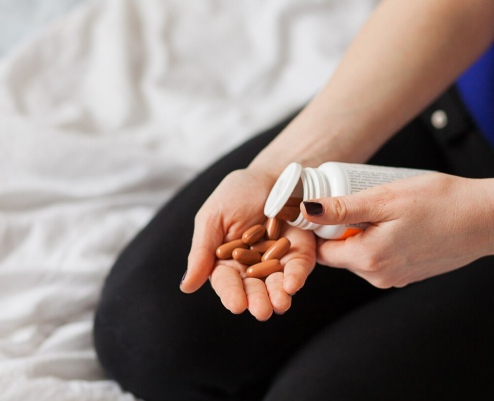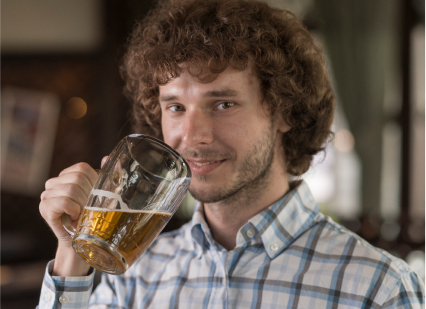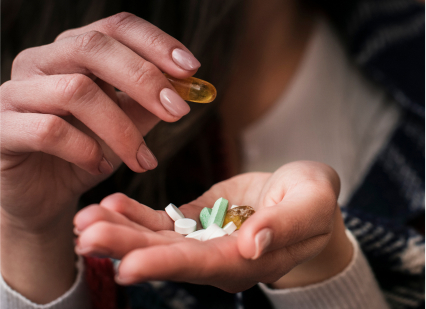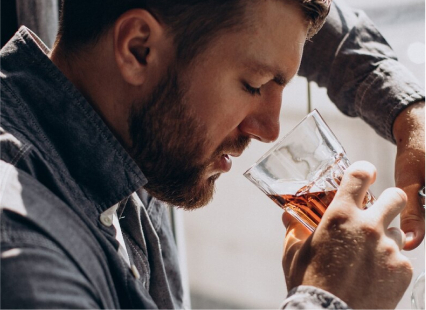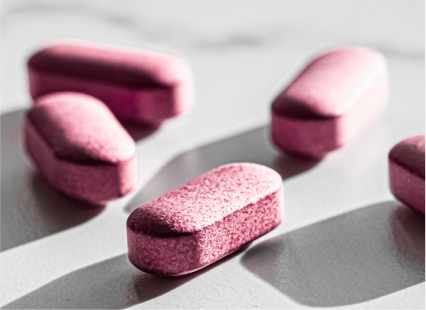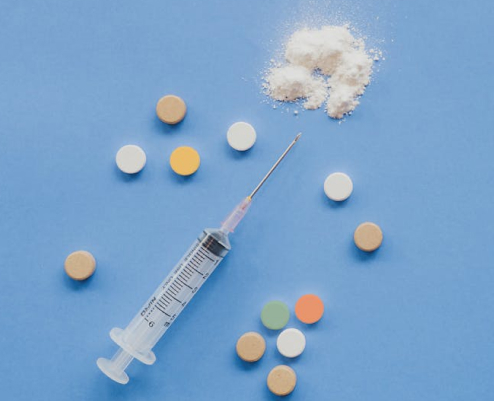A person’s life can be profoundly impacted by chronic pain. It may have an effect on every aspect of your life. If you experience constant and agonizing pain, getting relief will probably take precedence over other things. This puts you in danger of using drugs as a coping mechanism for ongoing discomfort and possibly becoming addicted to them. The situation becomes even more complicated and difficult to handle on your own because of this. Lake Worth FL rehab center is here to explain the connection between chronic pain and addiction. We will give you the necessary information and help you manage your chronic pain wisely in order to avoid becoming dependent on substances.
Usual Causes of Chronic Pain
There are many medical conditions that cause constant pain. Each one is unique and presents a different set of challenges.
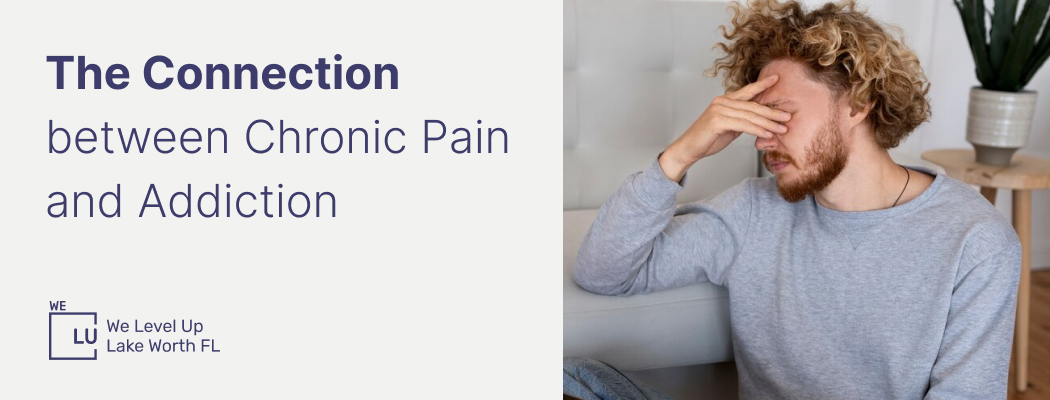
Here are the cases that usually result in chronic pain:
- Migraines are very intense and can last for hours and, sometimes, days. They can make you sensitive to light and sound, and they often cause nausea.
- Arthritis involves inflammation of joints. This condition may lead to pain, swelling, and stiffness. Sometimes, it affects one and, sometimes, multiple joints. It might get worse with age.
- Fibromyalgia involves muscle pain and fatigue. The disorder affects how the brain processes pain signals. And, as a result, it increases pain sensations.
- Back problems caused by injuries, herniated discs, scoliosis, and other conditions may lead to chronic back pain. Back problems will probably limit your mobility and impact the quality of your life.
- Cancer affects the whole body in many ways. Pain may come from the disease itself or the treatments used to battle it (chemotherapy and surgery).
- Neuropathic pain, also known as neuralgia, occurs when a medical issue impacts the sensory nerves that lead to the brain. Burning, shooting, or stabbing can cause neuropathic pain as they damage your nervous system.
The Role of Opioids in Pain Management
People who deal with severe or chronic pain often end up using opioids. These drugs decrease the pain signals that reach the brain. Also, they affect the areas in your brain that control emotions. So, a painful stimulus has less of an impact because of this.
Opioids significantly reduce acute pain. This type of pain follows surgery or comes from cancer. We use them to manage chronic pain, as well, if other treatments do not provide relief.
However, there are risks. Risks include substance dependence, even when these medications are taken as prescribed. Over time, the pain relief effect lowers, which just makes your body need more of the medication. This eventually results in higher doses and increases the risk of creating a bad habit. That is why many people say that chronic pain and addiction go hand in hand.
There is one condition that is not widely known – opioid-induced hyperalgesia (OIH). It is a state that occurs when opioid use makes you more sensitive to pain (instead of less sensitive). This creates a cycle where you want to take more medication in order to relieve the pain, but the medication worsens your situation.

Psychological Impacts of Chronic Pain
Chronic pain affects your mental health, too. These are some of the consequences of constant pain.
- Depression: You might develop depression when struggling with chronic pain (due to the feeling of hopelessness). Additionally, you might stop enjoying the activities you once loved (because of the debilitating effects of pain). This correlation might make the experience of pain stronger.
- Anxiety: While dealing with persistent pain, you get worried about when the pain will return or worsen. Furthermore, anxiety might intensify the physical experience of pain, which makes it very difficult to find effective treatment solutions.
- Impact on pain management: Depression and anxiety make you unable to stick to treatment plans or engage in physical activity. When you perceive pain more intensely, it becomes more difficult to think, let alone act.
Addiction Risks with Chronic Pain
Medications are effective at managing chronic pain. However, using them bears the risk of addiction. There are factors that can increase this risk, which means that we need to be even more cautious. Here are some factors:
- Genetics. Your genetic makeup affects how easily you develop an addiction. The risk is increased if there is a family history of substance misuse or addiction. Genetics also affects how your body handles pain and the drugs prescribed to treat it. This also has an impact on your likelihood of developing an addiction.
- Past substance abuse history. If you had an addiction before – you are more likely to become addicted again.
- Mental health disorders. You are at a higher risk of developing an addiction if you are dealing with anxiety or depression. Chronic pain can make these conditions worse. This causes you to be more reliant on pain medication.
- Lack of alternative pain management strategies. If there are no alternative strategies – physical therapy, acupuncture, or behavioral therapy – you might rely only on medication for pain relief.
- Inadequate pain management education. If you don’t fully understand the risks (and how to properly use pain medication), you might misuse it and become addicted afterward.

Alternative Treatments to Chronic Pain and Addiction
Opioids are not the only way to go for treatment. There are plenty of other options that can reduce pain and minimize the risk of addiction. Some of them are:
- NSAIDs (Nonsteroidal Anti-Inflammatory Drugs) — Medications such as ibuprofen and naproxen can reduce inflammation and relieve pain. We use them for arthritis or injury.
- SNRIs (Serotonin and Norepinephrine Reuptake Inhibitors) — These medications increase serotonin and norepinephrine in the brain, helping you manage chronic pain related to nerve pain or fibromyalgia by perceiving pain more lightly.
- Anticonvulsants — They were developed to treat epilepsy. Anticonvulsants stabilize nerve cells to prevent or reduce pain signals.
Holistic Approaches
As we already mentioned, there are numerous ways to treat chronic pain and addiction. Some of the holistic approaches include:
- Physical therapy: It will strengthen your muscles, make you more flexible, and reduce pain.
- Acupuncture: By finding specific points on the body, specialists insert thin needles and relieve pain.
- Massage therapy: Even occasional massage can help reduce muscle tension and pain, improve circulation, and help you relax.
- Mindfulness and meditation: Techniques that focus on relaxation and mindfulness can help reduce the perception of pain and improve mental well-being.
- Yoga and Tai Chi: These practices combine physical movement, meditation, and breathing exercises to strengthen the body, reduce pain, and improve mental health.

Addiction Data in Florida
In 2022, research from the Florida Department of Health showed that 493 overdose deaths were reported in Palm Beach County – which is a concerning number of deaths. Unfortunately, this wasn’t a local problem. That year, 7,556 overdose deaths occurred in Florida, making it a much larger issue overall. These figures demonstrate the severity of the addiction problem in our neighborhood and the state. It’s a clear call to action for improved addiction treatment, prevention, and recovery support.
Comprehensive Treatment Approach in Lake Worth
If you want to manage your chronic pain and the risk of addiction, you need the comprehensive addiction treatment Florida rehab centers (like ours) provide. We address both the physical component of pain and the possibility of substance abuse. There are many benefits to this approach:
- Holistic view — We consider you as the whole person, not just a diagnosis. Our therapists don’t only look at the symptoms. They care about the physical, emotional, and psychological aspects of chronic pain and addiction issues.
- Coordinated care — We ensure healthcare providers work together to create a unified treatment plan. This way, we can ensure you get all the necessary information and attention.
- Prevention of relapse — When we treat both chronic pain and the potential for addiction at the same time, we decrease the probability of relapse.
- Personalized treatment plans — Our specialists customize treatment plans to match your needs and make them meaningful in your specific situation.

Drug Detox
During the inpatient drug detox in Florida at We Level Up Lake Worth FL, our caring team is with you every step of the way. Considering the whole picture (your body, mind, and emotions), we will take care of your medical needs, support your mental health, ensure your comfort, and guide you through any doubts. We will also act proactively to make sure you stay sober and on track.
Our center provides a range of treatments to help you through the most trying times and to make the detox process more bearable. This covers over-the-counter medications as well as prescription drugs such as Disulfiram, Suboxone, Methadone, Naltrexone, and Acamprosate when needed. These drugs are used with caution to minimize the extreme symptoms, adverse effects, and cravings that you may have during detoxification. We hope that the treatments we use will provide you with the necessary support to avoid relapse and begin the journey to recovery.

Prescription Drug Detox
If you are not sure how to treat chronic pain and addiction issues, you should know that detoxing from prescription medications is very tough. Why? Because the withdrawal symptoms are often as intense as when you are detoxing from illicit drugs. This is the reason detoxing at home is not the best way to do it. Detoxing from any drug (even prescripted one) is not a simple process. Therefore, you will need professional help to be safe.
Benefits of a Prescription Drug Detox Program
For those overcoming addiction to prescription drugs, enrolling in the prescription drug detox Lake Worth, Florida patients trust offers numerous advantages. These programs provide:
- 24/7 monitoring: Constant support ensures safety throughout the withdrawal process.
- Medical interventions: Professional care to manage severe withdrawal symptoms and reduce discomfort.
- Access to alternative therapies: Programs often include holistic treatments, such as those mentioned for at-home detox, which support overall well-being.
- Licensed addiction professionals: Expert guidance from professionals trained in addiction care and recovery.
- Individualized treatment plans: Tailored strategies that address your specific needs.
Family Support in Chronic Pain and Addiction Recovery
When you are struggling with addiction, your family feels the impact as well. After all, addiction is a family disease. So why is having family close to you so important while battling chronic pain and addiction treatment? A family usually offers a stable environment. They give you love, accept you, and understand you. If you establish open and honest communication, their support is even more meaningful. It can help you see issues early on. This makes early intervention possible and increases the chances of a successful recovery.
Also, a supportive family motivates you and encourages you to go on. Your family learns together with you and can help you break the cycle of addiction that may be present in your family history. Lastly, families who are close will notice relapse signs and react quickly. But, for that to be possible, family members must be educated and informed so they can recognize all the potential signs of a relapse.
What Families Can Do
Your family can help you a lot while struggling with drug addiction and chronic pain. They can:
- Attend family counseling: Doing this will make your family bonds stronger. Also, they will support you in a more meaningful way.
- Provide emotional support: Sometimes, only listening means a lot. During tough times, being present can give you a feeling of support.
- Set healthy boundaries: To help you better, there should be clear boundaries. This way, they won’t enable your addictive behavior, not knowingly.
- Educate themselves: Your family should learn about the nature of addiction. Once they truly understand what is going on, they will be able to help you more.
- Engage in supportive activities: Go to support groups and take up hobbies with your family. This will bring you closer and help you heal.

Seek Professional Help and Make Safe Choices
Dealing with chronic pain and addiction on your own is difficult. When these two issues come together, they represent a big challenge. Therefore, talk openly about the issues with your healthcare team. If you know the risks of painkillers, you will be able to find other ways to ease pain and make safe choices. Choose a treatment that fits your needs and supports your body and mind. With the right medical care, treatment options, and support, you can manage pain effectively without falling into addiction.
Start a New Life
Begin with a free call to an addiction & behavioral health treatment advisor. Learn more about our dual-diagnosis programs. The We Level Up treatment center network delivers recovery programs that vary by each treatment facility. Call to learn more.
- Personalized Care
- Caring Accountable Staff
- World-class Amenities
- Licensed & Accredited
- Renowned w/ 100s 5-Star Reviews
We’ll Call You
